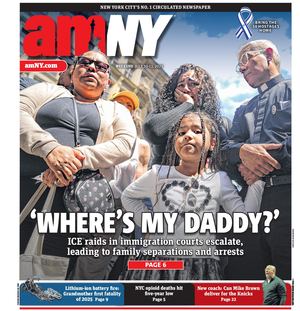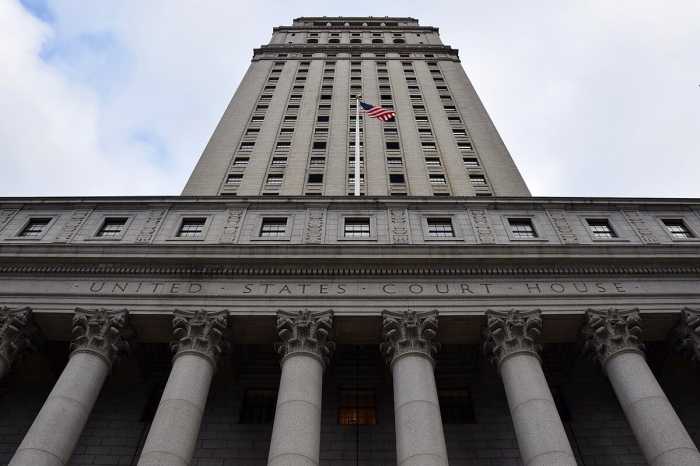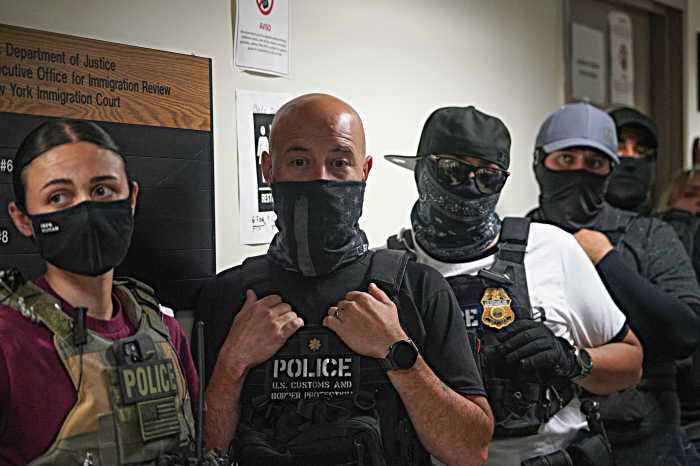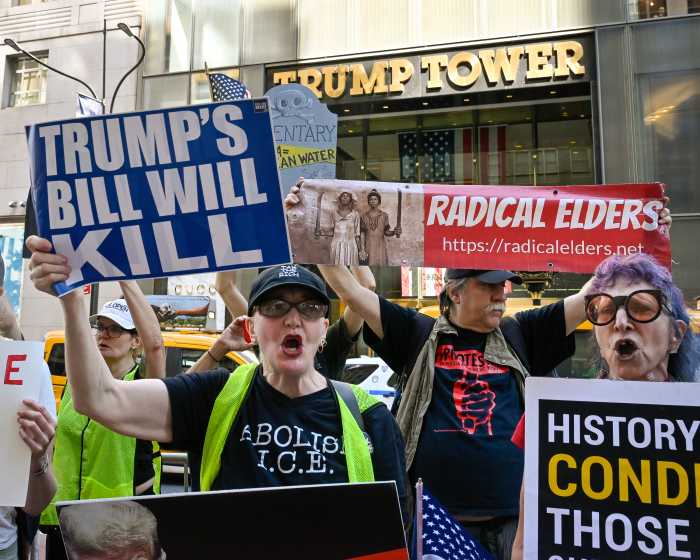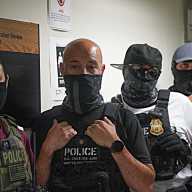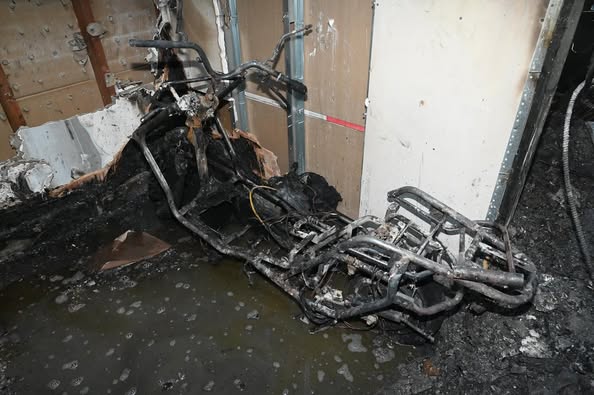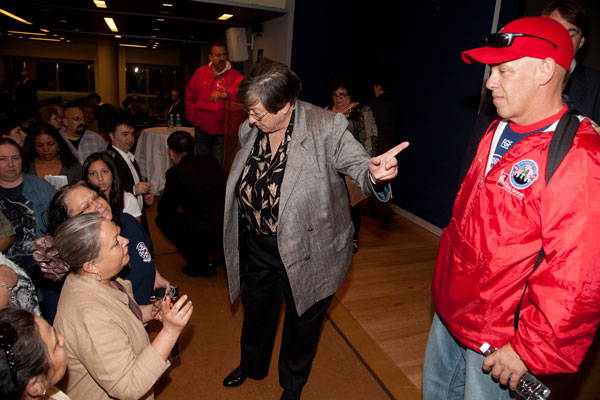
BY ALINE REYNOLDS | Forty-seven-year-old Ken George, a 9/11 first responder, is too sick to work due to his exposure to Ground Zero toxins.
George was forced to retire in 2006, a year after having a heart attack that doctors believe was precipitated by steroids and other medication he was taking for his respiratory problems.
George and his family are now left with steep medical co-pays and an uncertain future. “It’s really tough living this way, especially at my age,” he said. “When you have the diseases I have, you’re not expected to live too long. I want to make sure my wife and kids are taken care of.”
George and others seeking legal retribution for their 9/11 illnesses will have the chance to apply for monetary compensation starting Oct. 1, said Special Master Sheila Birnbaum, who presented the initial terms of the Zadroga Act’s Victim Compensation Fund during a town hall meeting last Wed., June 29. The meeting is one of several that Birnbaum is organizing to solicit feedback on the bill’s draft regulations, which the National Institute for Occupational Safety and Health (N.I.O.S.H.) released late last month.
Future claimants will be able to weigh in on how their compensation packages will be handled, according to Birnbaum, who encouraged those in attendance to give input on the program’s initial terms between now and August.
“My first priority will be to sit down with the people who will be most affected by the program, and see how we can design a program that is fair, transparent and easy to navigate,” Birnbaum told the hundreds of 9/11 survivors and advocates that filled the United Federation of Teachers office at 52 Broadway.
“The fund needs to get up and running quickly,” said Birnbaum. “At the same time, I want to make sure we do it right.”
The fund consists of $2.78 billion. Only $875 million, however, will be available for distribution before 2016, to many survivors’ disappointment.
“It’s really a bad idea. I’m sure that most of the claimants want the money now. People are in dire need financially,” said first responder Marvin Bethea, a former paramedic at St. John’s Hospital.
“We didn’t wait when we responded down at Ground Zero… why should they delay in the compensation?” said former police officer Anthony Flammia, who suffers from gastroesophageal reflux and reactive airway disease and is awaiting compensation.
Payments, Birnbaum said, are also subject to reductions, depending on the ultimate number of applicants and awards. Life insurance, pensions and other benefits claimaints have already received will also be taken into account while the awards are determined.
On the flip side, stakeholders were pleased with much of Birnbaum’s presentation. For example, George and others were relieved that, as former V.C.F. recipients, they’re eligible for funds from the new program.
“I’m glad they opened it up for the people that collected from the first fund. A lot of people got sicker, and more illnesses came out,” said George, whose lung condition has worsened over the years.
They were also happy to hear that the claims territory from the first V.C.F. has been enlarged to include east of Nassau St., below the Brooklyn Bridge; and south of Thames St. and Exchange Pl., stretching to the southernmost tip of Lower Manhattan. The time frame of Ground Zero exposure was also expanded to May 30, 2002.
The program also allows for compensation-worthy illnesses to be amended according to new research, Birnbaum noted. Survivors and advocates have been particularly pushing for certain cancers to be added to the list, which Birnbaum said she and the N.I.O.S.H. officials would consider in the coming months.
Feeback thus far on the program has been promising, said Birnbaum. “I think everybody was very patient and measured, but are very anxious about how this is all going to work,” she said, following the event. “I think our message was appreciated by the people who are really affected by this.”
Stakeholders, in turn, said they are confident that Birnbaum is the right fit for the job. “She is very adept and very receptive to getting information from the community,” said Kimberly Flynn, coordinator of 9/11 Environmental Action, a community-based organization comprised of residents, parents and occupational safety, public and environmental health advocates.
“It’s probably the first time that I’ve ever heard a federal official turn to the community and responder stakeholders and say, ‘these are the guidelines. If I got it wrong, tell me,’” she said.
“She was honest, she was straightforward and she was transparent,” said 9/11 activist John Feal, founder of the FealGood Foundation, a nonprofit that provides assistance to 9/11 first responders and their families. “She’s embedded herself in 9/11, and I think the 9/11 community is going to benefit from her leadership.”
And, while Birnbaum’s words were comforting to many, survivors and their families are anxiously waiting to see the special master put her words into action. “I think it’s a wait-and-see case right now to see what the specifics are going to be,” said Flammia.
“I hope there’s enough money to take care of all these sick people that were down there, and that they get what they’re entitled to,” said George.
Future claimants are encouraged to read and comment on the V.C.F.’s draft regulations at www.justice.gov/vcf, by Fri., Aug. 5. The regulations will be finalized in September.
